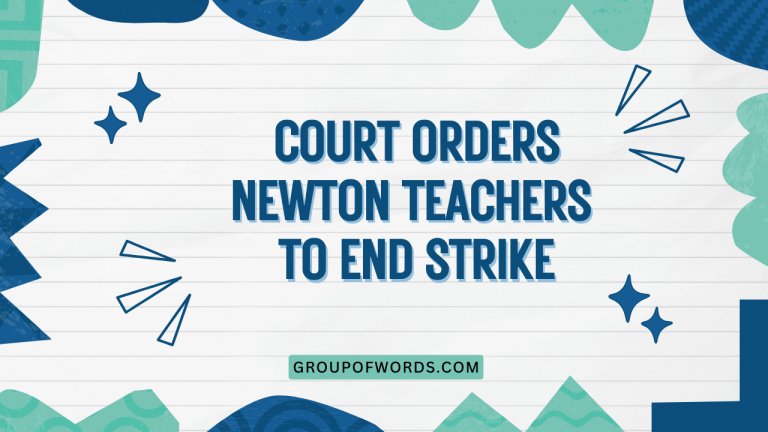Mastering Words Ending in ‘Q’: A Comprehensive Guide
Words ending in ‘q’ are relatively rare in the English language, but understanding their usage is crucial for both native speakers and English language learners. This article dives deep into the world of words ending in ‘q’, exploring their definitions, structural elements, usage rules, and common mistakes.
Mastering these words will not only enhance your vocabulary but also improve your overall command of the English language. This guide is beneficial for students, writers, and anyone looking to refine their English skills.
Table of Contents
- Introduction
- Definition of Words Ending in ‘Q’
- Structural Breakdown
- Types and Categories
- Examples of Words Ending in ‘Q’
- Usage Rules
- Common Mistakes
- Practice Exercises
- Advanced Topics
- FAQ
- Conclusion
Introduction
The English language, a rich tapestry woven from various linguistic threads, often presents unique challenges and intriguing peculiarities. One such peculiarity lies in the limited number of words that gracefully conclude with the letter ‘q’.
While seemingly a minor detail, understanding these words and their proper usage can significantly enhance one’s command of English. This article serves as a comprehensive guide, meticulously dissecting the nuances of words ending in ‘q’, providing definitions, structural analysis, usage rules, and practical examples.
Whether you are a student striving for academic excellence, a writer seeking to refine your prose, or simply an individual with a passion for language, this article will equip you with the knowledge and confidence to navigate the subtle complexities of English vocabulary.
Definition of Words Ending in ‘Q’
Words ending in ‘q’ are characterized by the presence of the letter ‘q’ at their terminal position. In English, this is a relatively uncommon occurrence.
These words, though few in number, often originate from other languages, primarily Arabic and French. They typically represent nouns and sometimes appear in specific contexts, such as describing geographical locations or technical terms.
Classification
Words ending in ‘q’ are primarily classified as nouns. While some may function as adjectives or adverbs in specific contexts, their fundamental role is to name entities, places, or concepts.
The classification is important for understanding how these words fit into sentences and grammatical structures.
Function
The primary function of words ending in ‘q’ is to act as nouns, designating specific items, locations, or ideas. Their function within a sentence is determined by their grammatical role, such as subject, object, or complement. For instance, in the sentence “The Iraq war was devastating,” the word “Iraq” functions as an adjective modifying the noun “war”.
Contexts
Words ending in ‘q’ often appear in specific contexts, such as geographical references (e.g., Iraq, Mozambique), loanwords from other languages (e.g., Souq), and occasionally in scientific or technical fields. Understanding these contexts is crucial for accurate interpretation and usage.
The context often provides clues to the word’s meaning and origin, helping learners to use it correctly.
Structural Breakdown
The structure of words ending in ‘q’ is relatively straightforward. The letter ‘q’ always appears at the end, often preceded by a vowel or consonant combination that determines the word’s pronunciation and origin.
Analyzing the structural components can provide insights into the word’s etymology and meaning.
Phonetics and Pronunciation
The pronunciation of words ending in ‘q’ varies depending on the word’s origin. Generally, the ‘q’ is often silent or has a subtle sound that blends with the preceding vowel.
Accurate pronunciation requires attention to the specific word and its cultural context. Consider the word “Iraq,” where the “q” is not distinctly pronounced but influences the preceding vowel sound.
Etymology and Origins
Many words ending in ‘q’ are loanwords, meaning they have been adopted from other languages. Arabic and French are common sources.
Understanding the etymology of these words can provide valuable insights into their meanings and usage. For example, “Souq” originates from Arabic, referring to a marketplace.
Morphology
Morphologically, words ending in ‘q’ are usually simple nouns without complex prefixes or suffixes. Their morphological structure is relatively stable, with little variation in form.
This simplicity makes them easier to recognize and use in sentences.
Types and Categories
Words ending in ‘q’ can be categorized based on their origin, usage, and semantic domain. These categories help in understanding the diverse roles these words play in the English language.
Geographical Names
Many words ending in ‘q’ are geographical names, referring to countries, regions, or cities. These names are essential for discussing international affairs, geography, and cultural studies.
Examples include Iraq, Mozambique, and Quebec(although technically this ends in ‘c’, it has a ‘k’ sound and is often associated with ‘q’ words).
Loanwords from Arabic
A significant number of words ending in ‘q’ are loanwords from Arabic, often related to commerce, culture, or cuisine. These words enrich the English language by introducing new concepts and terms from the Arab world.
Examples include Souq (marketplace) and Tariq (a male name).
Loanwords from Other Languages
Besides Arabic, words ending in ‘q’ may also originate from other languages, although this is less common. These loanwords contribute to the diversity of the English lexicon.
Examples might include words adapted through French influence, although pure examples ending directly in ‘q’ are rare.
Examples of Words Ending in ‘Q’
Understanding the usage of words ending in ‘q’ requires examining specific examples in context. The following tables provide a comprehensive list of these words, categorized by their type and usage.
Geographical Examples
Geographical names ending in ‘q’ are crucial for discussing world geography and international relations. These examples illustrate their usage in sentences.
| Word | Example Sentence |
|---|---|
| Iraq | The war in Iraq had a profound impact on the Middle East. |
| Mozambique | Mozambique is a country located in Southeast Africa. |
| Quebec | Quebec is the biggest province in Canada by land area. |
| Iraq | The ancient history of Iraq is fascinating. |
| Mozambique | Tourism in Mozambique is growing rapidly. |
| Quebec | Quebec’s culture is heavily influenced by its French heritage. |
| Iraq | Rebuilding Iraq’s infrastructure is a major challenge. |
| Mozambique | The economy of Mozambique relies heavily on agriculture. |
| Quebec | Quebec is known for its vibrant arts scene. |
| Iraq | Many artifacts from ancient Iraq are now in museums around the world. |
| Mozambique | The coastal regions of Mozambique are particularly beautiful. |
| Quebec | Quebec City is a UNESCO World Heritage site. |
| Iraq | The people of Iraq have a rich and diverse culture. |
| Mozambique | Mozambique has a tropical climate. |
| Quebec | The government of Quebec promotes French language and culture. |
| Iraq | Oil is a major export from Iraq. |
| Mozambique | Mozambique gained independence in 1975. |
| Quebec | Many people in Quebec speak French as their first language. |
| Iraq | The landscape of Iraq varies from deserts to fertile river valleys. |
| Mozambique | Mozambique’s wildlife is a major attraction for tourists. |
| Quebec | Quebec’s winter festivals are popular events. |
| Iraq | The history of Iraq dates back to ancient Mesopotamia. |
| Mozambique | Mozambique faces challenges related to poverty and development. |
| Quebec | Quebec’s natural resources include forests and minerals. |
Arabic Loanword Examples
Arabic loanwords ending in ‘q’ often refer to cultural or commercial concepts. Understanding these words enhances knowledge of the Arab world.
| Word | Example Sentence |
|---|---|
| Souq | We bought spices at the bustling souq. |
| Souq | The local souq was filled with vendors selling various goods. |
| Souq | Visiting the souq is a great way to experience the local culture. |
| Souq | The aroma of spices filled the air in the souq. |
| Tariq | Tariq is a common name in many Arab countries. |
| Tariq | I met Tariq at the conference last year. |
| Tariq | Tariq gave an insightful presentation on renewable energy. |
| Tariq | The company appointed Tariq as the new CEO. |
| Souq | Haggling is common practice in the souq. |
| Tariq | Tariq is fluent in both Arabic and English. |
| Souq | The souq is a popular tourist destination. |
| Tariq | Many people named Tariq have made significant contributions to science. |
| Souq | Traditional crafts can be found in the souq. |
| Tariq | Tariq is known for his innovative ideas. |
| Souq | The souq is a hub of activity during the day. |
| Tariq | Tariq’s research has had a major impact on the field. |
| Souq | The souq offers a wide variety of products. |
| Tariq | Tariq is a dedicated community leader. |
| Souq | The souq is a great place to find unique souvenirs. |
| Tariq | Tariq’s leadership skills are highly valued. |
| Souq | The souq is an integral part of the city’s cultural heritage. |
| Tariq | Tariq is a member of several professional organizations. |
Other Examples
This table includes a variety of other words that may end in ‘q’, often from less common sources or specialized contexts.
| Word | Example Sentence |
|---|---|
| Cinq | The group consisted of cinq members.(rare usage) |
| Coq | The coq was a symbol of France. (rare usage) |
| Cinq | There are cinq acts on the program. (very rare) |
| Coq | The French restaurant served coq au vin. (very rare) |
| Cinq | The artist painted cinq landscapes. (very rare) |
| Coq | The coq crowed loudly in the morning. (very rare) |
| Cinq | The recipe calls for cinq ingredients. (very rare) |
| Coq | The coq strutted around the barnyard. (very rare) |
| Cinq | The book has cinq chapters. (very rare) |
| Coq | The farmer raised coq for their meat. (very rare) |
| Cinq | The project requires cinq participants. (very rare) |
| Coq | The coq is a symbol of courage. (very rare) |
| Cinq | The team has cinq players. (very rare) |
| Coq | The coq is often depicted in French art. (very rare) |
| Cinq | The class has cinq modules. (very rare) |
| Coq | The coq is a popular symbol in French culture. (very rare) |
Usage Rules
The usage of words ending in ‘q’ follows specific rules, primarily related to their grammatical role and context. Adhering to these rules ensures clarity and correctness in writing and speech.
Grammatical Agreement
Words ending in ‘q’ must agree grammatically with other elements in the sentence, such as verbs and adjectives. This agreement ensures that the sentence is coherent and grammatically sound.
For example, if “Iraq” is the subject, the verb must agree in number and tense.
Contextual Appropriateness
The use of words ending in ‘q’ should be appropriate for the context. Geographical names should be used when discussing locations, while loanwords should be used in contexts related to their origin.
Inappropriate usage can lead to confusion or misinterpretation.
Formal vs. Informal Usage
The formality of words ending in ‘q’ can vary. Geographical names are generally neutral, while some loanwords may be more common in formal or informal settings.
Consider the audience and purpose when choosing these words.
Common Mistakes
Several common mistakes occur when using words ending in ‘q’. Being aware of these errors can help learners avoid them and improve their accuracy.
Mispronunciation
Mispronunciation is a common mistake, especially with loanwords. Learners should pay attention to the correct pronunciation, often by consulting dictionaries or native speakers.
Incorrect: Saying “I-rack” instead of “Ee-rock” for Iraq.
Correct: Saying “Ee-rock” for Iraq.
Misspelling
Misspelling words ending in ‘q’ can occur due to their relative rarity. Double-checking the spelling is essential for avoiding errors.
Incorrect: Writing “Irac” instead of “Iraq.”
Correct: Writing “Iraq.”
Incorrect Usage
Using a word ending in ‘q’ in an inappropriate context can lead to confusion. Understanding the word’s meaning and origin is crucial for correct usage.
Incorrect: “The souq is located in Europe.” (Souqs are typically in Arab countries.)
Correct: “The souq is located in Marrakech.”
Practice Exercises
These practice exercises will help you reinforce your understanding of words ending in ‘q’. Each exercise focuses on different aspects of their usage.
Exercise 1: Fill in the Blanks
Fill in the blanks with the appropriate word ending in ‘q’.
| Question | Answer |
|---|---|
| The capital of ______ is Baghdad. | Iraq |
| We visited a traditional ______ in Marrakech. | Souq |
| ______ is a country on the southeastern coast of Africa. | Mozambique |
| ______ is a province in Canada with a French-speaking majority. | Quebec |
| ______ is a common Arabic name meaning “morning star”. | Tariq |
| The battle took place in ______ in 2003. | Iraq |
| The market in ______ was bustling with activity. | Souq |
| ______ is known for its beautiful beaches and coral reefs. | Mozambique |
| ______’s culture is heavily influenced by France. | Quebec |
| ______ is a respected scholar in the field of Islamic studies. | Tariq |
Exercise 2: Correct the Mistakes
Identify and correct the mistakes in the following sentences.
| Question | Answer |
|---|---|
| I visited Irac last year. | I visited Iraq last year. |
| The sook was very crowded. | The souq was very crowded. |
| Mosambique is a beautiful country. | Mozambique is a beautiful country. |
| Quebeck is known for its poutine. | Quebec is known for its poutine. |
| Tariq’s name is spelled Tareq. | Tariq’s name is spelled Tariq. |
| The war in Irac was devastating. | The war in Iraq was devastating. |
| The sook offered a variety of goods. | The souq offered a variety of goods. |
| Mosambique’s beaches are stunning. | Mozambique’s beaches are stunning. |
| Quebeck City is a UNESCO site. | Quebec City is a UNESCO site. |
| Tareq is a common name in the Middle East. | Tariq is a common name in the Middle East. |
Exercise 3: Sentence Building
Create sentences using the following words ending in ‘q’.
| Word | Example Sentence |
|---|---|
| Iraq | The artifacts from ancient Iraq are priceless. |
| Souq | The vibrant colors of the spices filled the souq. |
| Mozambique | The coastal waters of Mozambique are rich in marine life. |
| Quebec | Quebec celebrates its French heritage through various festivals. |
| Tariq | Tariq is an expert in cybersecurity. |
| Iraq | The rebuilding of Iraq is a long and complex process. |
| Souq | Haggling is an essential skill when shopping in the souq. |
| Mozambique | Mozambique offers incredible opportunities for ecotourism. |
| Quebec | Quebec has a unique blend of European and North American cultures. |
| Tariq | Tariq is a strong advocate for human rights. |
Advanced Topics
For advanced learners, this section explores more complex aspects of words ending in ‘q’, including their historical evolution and nuanced usage.
Historical Evolution
The historical evolution of words ending in ‘q’ traces their journey from their original languages into English. Understanding this evolution provides a deeper appreciation for their current usage.
Nuanced Usage
Nuanced usage involves understanding the subtle differences in meaning and connotation between similar words. This requires a deep understanding of context and cultural background.
Rare Examples and Exceptions
Exploring rare examples and exceptions provides a comprehensive understanding of the topic. These cases often highlight the complexities and irregularities of the English language.
FAQ
Here are some frequently asked questions about words ending in ‘q’.
- Why are there so few words ending in ‘q’ in English?
The scarcity of words ending in ‘q’ in English is largely due to the phonetic rules and historical development of the language. English has primarily borrowed words ending in ‘q’ from other languages, and these borrowings have been relatively limited compared to other linguistic influences. The letter ‘q’ is also typically followed by ‘u’ in English, which further restricts its use at the end of words.
- Are all words ending in ‘q’ loanwords?
Yes, almost all words ending in ‘q’ in the English language are loanwords, meaning they have been adopted from other languages. Arabic is a significant source, but other languages may also contribute, albeit rarely. These words retain their original spelling and, to some extent, their pronunciation.
- How should I pronounce words ending in ‘q’?
The pronunciation of words ending in ‘q’ varies depending on their origin and the specific word. Generally, the ‘q’ is often silent or has a subtle sound that blends with the preceding vowel. Consulting a dictionary or listening to native speakers is the best way to ensure correct pronunciation.
- Is it ever correct to use a plural form for words like “Iraq”?
No, geographical names like “Iraq” are generally used in their singular form, even when referring to multiple aspects or regions within the country. Using a plural form would be grammatically incorrect.
- What is the best way to learn and remember these words?
The best way to learn and remember words ending in ‘q’ is through consistent exposure and active usage. Reading articles, watching videos, and practicing writing sentences using these words will help reinforce your understanding. Flashcards and mnemonic devices can also be useful tools.
- Can ‘q’ ever appear without ‘u’ in English?
Yes, ‘q’ can appear without ‘u’ in English words, especially in loanwords where the original spelling is retained. However, this is relatively rare, and most English words follow the ‘qu’ pattern.
- Are there any common idioms that use words ending in ‘q’?
No, idioms using words ending in ‘q’ are extremely rare. The limited number of such words makes it unlikely for them to feature prominently in common idiomatic expressions.
- How can I improve my vocabulary of words from Arabic origin?
To improve your vocabulary of words from Arabic origin, you can explore resources such as Arabic language learning materials, cultural dictionaries, and books on Middle Eastern history and culture. Engaging with Arabic-speaking communities and media can also enhance your understanding and retention of these words.
Conclusion
Mastering words ending in ‘q’ may seem like a minor detail in the grand scheme of English grammar, but it reflects a deeper understanding of the language’s nuances and origins. By exploring the definitions, structural elements, usage rules, and common mistakes associated with these words, learners can significantly enhance their vocabulary and overall command of English.
Remember to pay attention to pronunciation, context, and grammatical agreement to ensure accurate and effective communication. Continue practicing and expanding your knowledge, and you’ll find that even the rarest words become familiar and easy to use.






